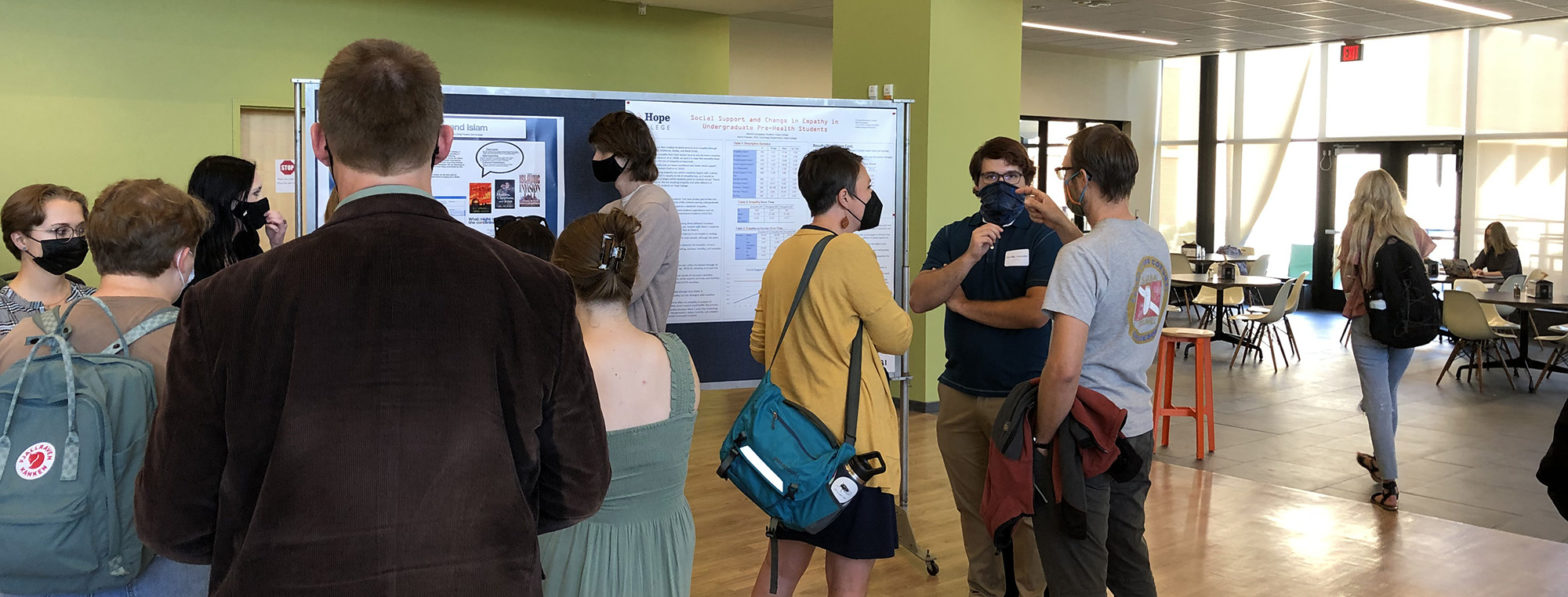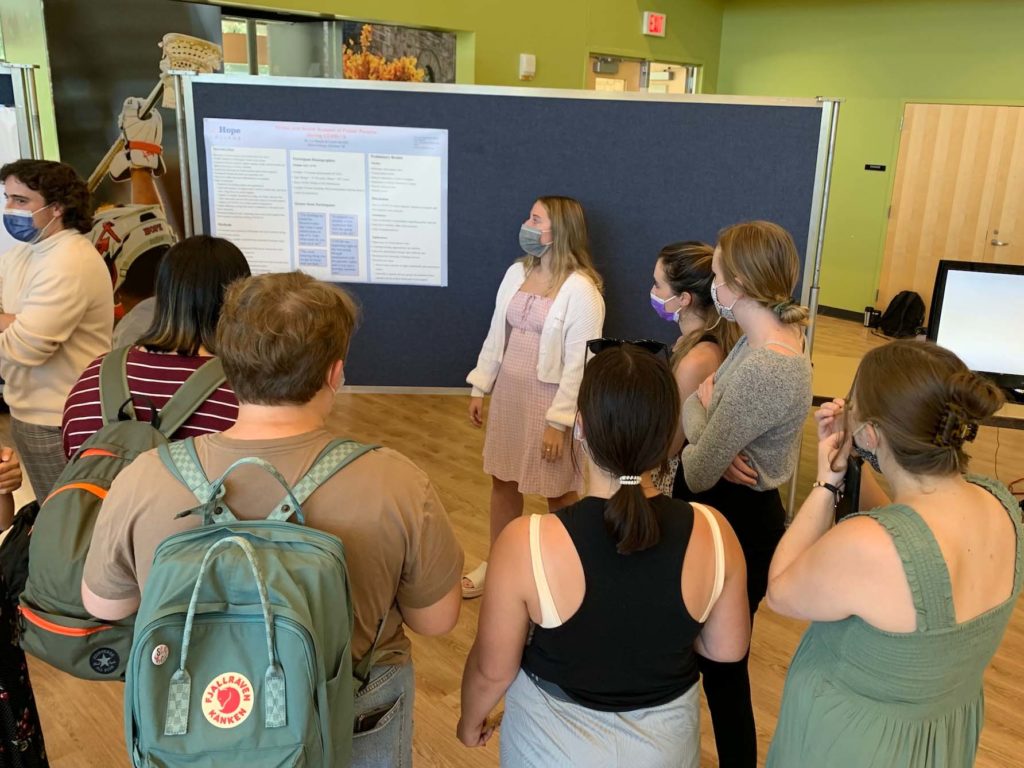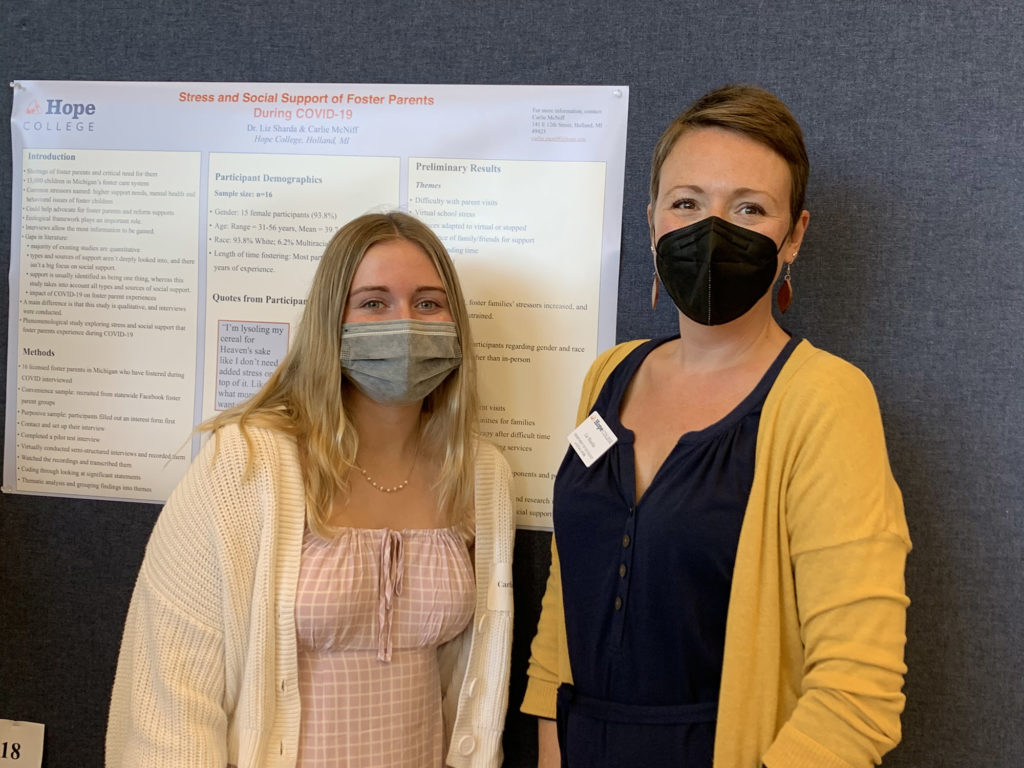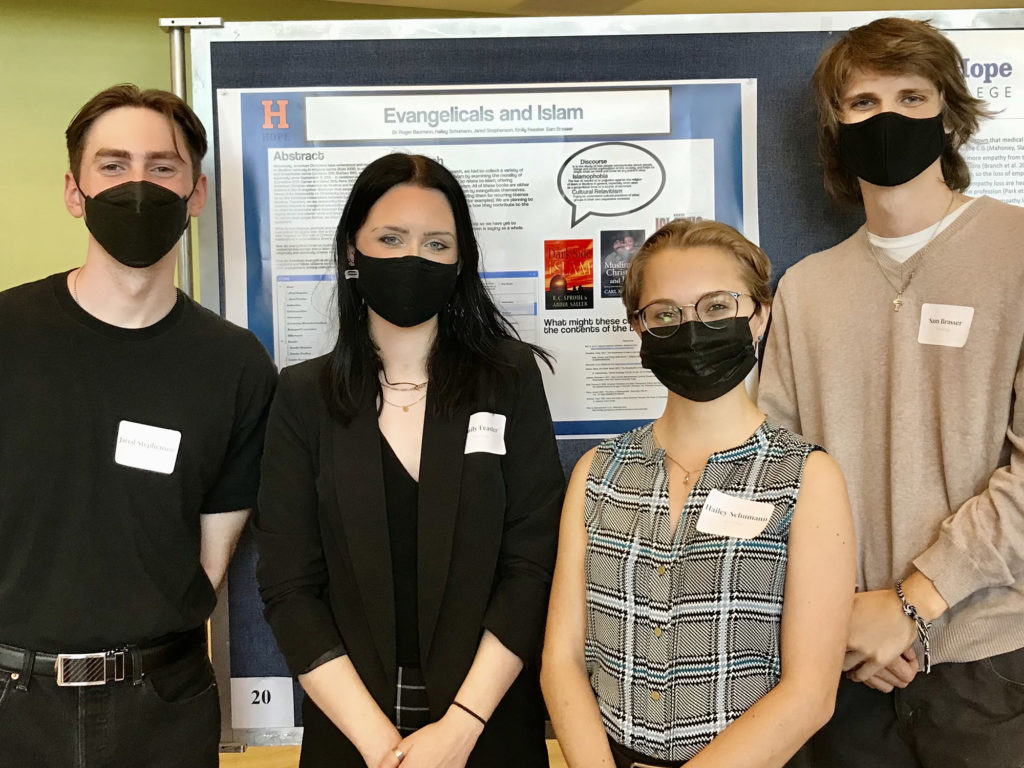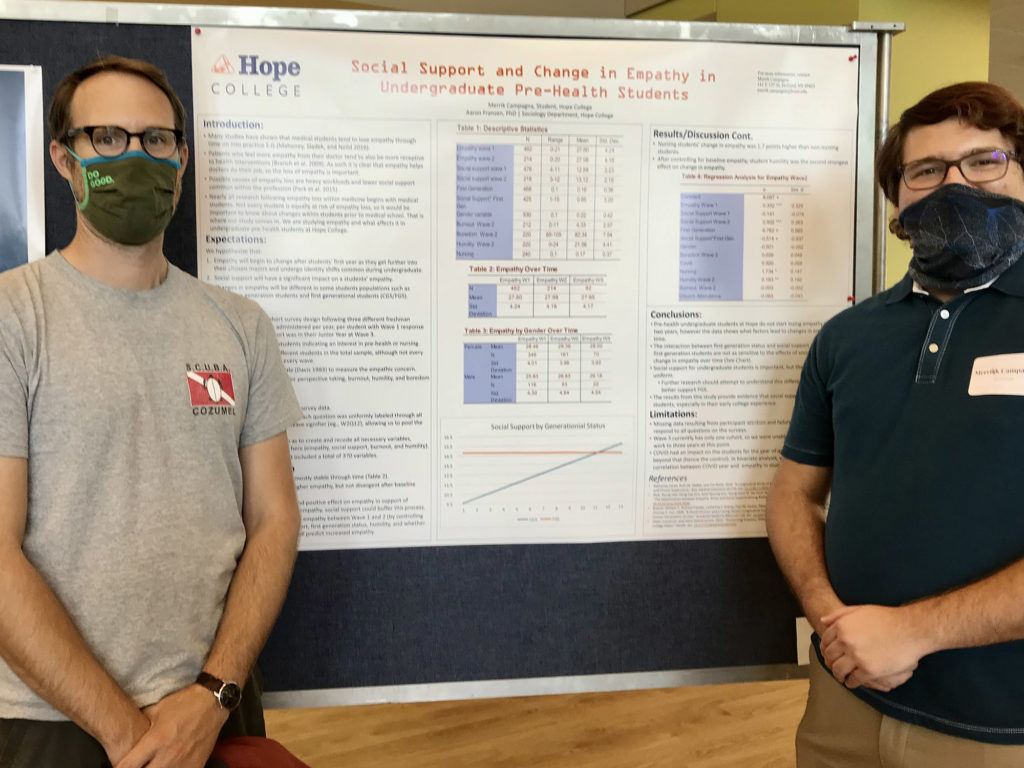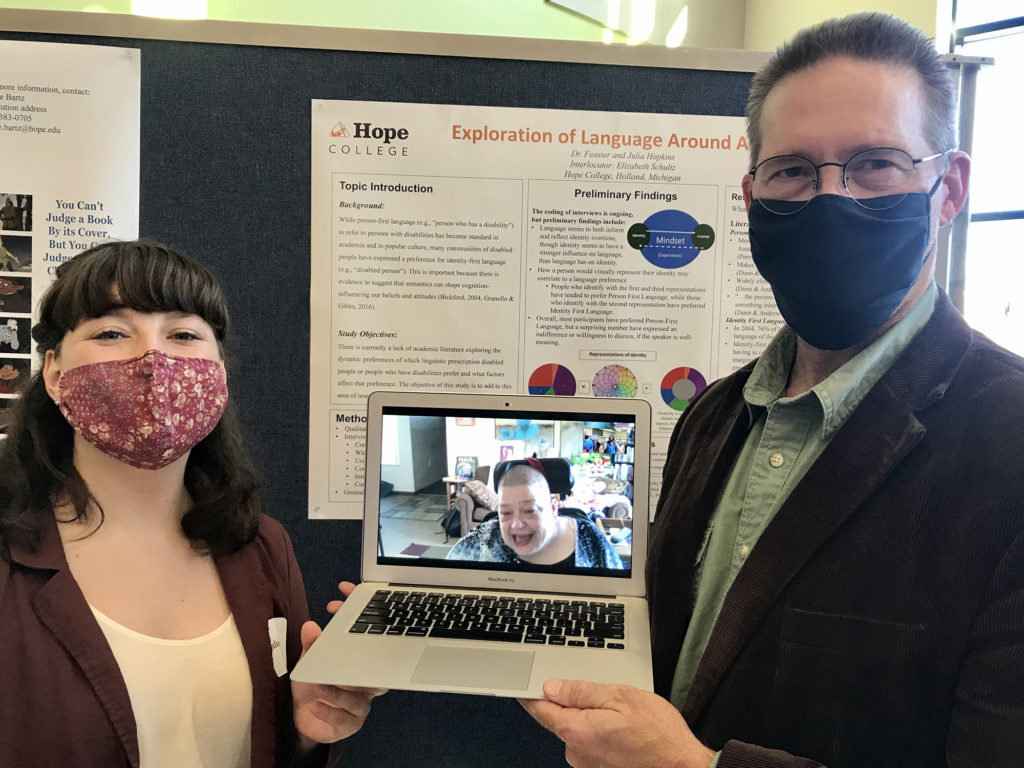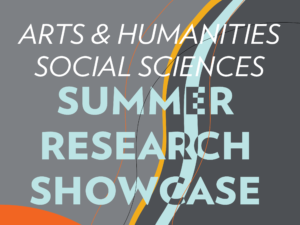
The Department of Sociology & Social Work has a deep commitment to fostering collaborative research between faculty and students and this was on full display at the recent Hope College Summer Research Showcase.
Summer is always a busy time for research—when students work closely with professors whose research programs align with their interests and goals—and this summer was no exception. We had six collaborative projects across Sociology and Social Work, involving nine students.
Dr. Sharda and Social Work senior Carlie McNiff collaborated on a timely analysis of stress and institutional support for foster parents during the ongoing Covid-19 pandemic. Together they conducted and coded 16 qualitative interviews with Michigan foster parents, identifying a range of factors contributing to increased stressors and strains on support mechanisms during the pandemic. Carlie shared:
“I think that our study is incredibly special because it gives foster parents the opportunity to tell their stories. With the information that we gain from them, we can advocate for foster parents, as well as foster children, and initiate support reform. I never looked at research in an advocacy light before this study, and I’m glad that I’ve had my eyes opened to it.”
Dr. Franzen worked with Merrik Campagna, a Computer Science and Sociology major on an ongoing longitudinal study of Hope College students who come to campus with the goal of pursuing a health profession. Their analysis focused on understanding the ebbs and flows of empathy as aspiring healthcare workers are socialized into medical fields.
Dr. Feaster and Social Work major Julia Hopkins collaborated on a study of the relationship between language, identity, and ability examining preferences for person-first language (e.g., “person who has a disability”) versus identity-first language (e.g., “disabled person”) among research participants.
Dr. Corner and Social Work major Caroline Daniels collaborated to systematically review literature focused on the characteristics and causes of child and enslaved labor in the chocolate industry and ways key organizations and agencies are working to address these issues.
Dr. Serrao worked with Political Science and Sociology major Hannah Santiago and Anthropology and Spanish major Vicente Bickel to develop a literature review of the extensive and nuanced scholarly publication about Latinx and whiteness in the United States.
Dr. Baumann worked with a team of interdisciplinary majors representing Sociology, Social Work, and Communications on the preliminary stages of a project examining how American Evangelical Christians have talked about Islam and inter-religious relationships with Muslims over the last several decades. Of the team research experience, Hailey Schumann was surprised at how well the summer research overlapped with her interests. She explained:
“Through my past coursework, I have had the freedom to explore concepts like social identities and how people engage with others different than themselves. Religion is often a major part of one’s identity, and so in doing this research, I have been able to learn about how religious groups approach and attempt to understand one another. It also so happens that I was first interested in this project because of my participation in a club on Hope’s campus known as HIYA, a group that promotes religious literacy and interfaith dialogue. My summer research experience has allowed me to pursue my passions in a professional setting and gain a better understanding of how people relate to one another across difference.”
Four of these research teams presented findings at the Arts & Humanities/Social Sciences Research Showcase, and more will present at the spring Celebration of Undergraduate Research & Creative Performance.
As a department, we are proud to offer these kinds of hands-on research experiences to students. And we are consistently impressed by the contributions that our student researchers bring to these partnerships with their creativity, incisiveness, and depth of knowledge!


